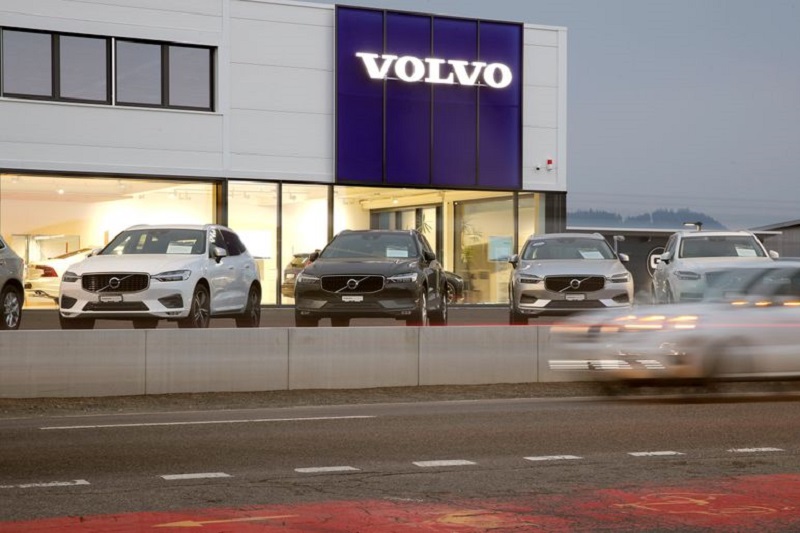NHL signs licensing deals with prediction-market startups Kalshi and Polymarket - WSJ
Investing.com -- RBC Capital Markets cut its price target for Swedish carmaker Volvo AB (ST:VOLVb) to SEK290 from SEK310 after reducing its 2026 earnings forecast by 8%, citing weaker truck orders and slowing demand in North and South America.
The brokerage maintained its “outperform” rating on the stock, which last closed at SEK255.90, in a note dated Tuesday.
Volvo reported a 14% year-over-year decline in truck orders in the third quarter, with a book-to-bill ratio of 0.80x.
The trucks division posted an adjusted EBIT margin of 9.1%, which was 100 basis points below consensus and 260 basis points lower than a year earlier.
RBC said the company’s market outlook for trucks remained cautious, with capacity adjustments still lagging in North and South America.
For 2026, Volvo’s management expects North American heavy-duty truck demand of 250,000 units, down 6% from the previous year and 19% lower than 2024.
Brazilian demand is projected at 75,000 units, representing a 12% decline from 2025 and 23% below 2024 levels. European heavy-duty demand is expected to rise 2% to 295,000 units.
Outside the trucks segment, Volvo’s performance was described as solid, with Construction Equipment, Buses, and Penta delivering stronger margins than anticipated.
Adjusted EBIT for Construction Equipment exceeded forecasts by 30%, Buses by 46%, and Penta by 7%, according to RBC.
RBC reduced its 2026 adjusted earnings-per-share estimate to SEK21.61. The brokerage said that at a price of SEK290, the shares would trade at a price-to-earnings multiple of 13.4x, slightly above Volvo’s 10-year average of 12.5x.
RBC said this valuation level was appropriate given that the truck markets in North and South America are operating below peak demand.
The brokerage noted that even if earnings were to fall another 10%, the revised price target would imply a 14.9x multiple, a level Volvo traded at during the 2016–17 and COVID-19 downturns.
The valuation was based on a 50-50 blend of discounted cash flow and multiples analysis.
The DCF model used a perpetuity growth rate of 2% and a weighted average cost of capital of 9%, implying a fair value of SEK300 per share.
Applying Volvo’s 10-year average P/E multiple to the 2026 adjusted EPS forecast yielded a fair value of SEK280, leading to the SEK290 target.
RBC’s upside scenario values Volvo at SEK400, assuming stronger performance in the truck and construction cycles. Its downside scenario of SEK175 reflects potential weakness in both segments.
The brokerage said Volvo’s 2026 adjusted EBIT is forecast at SEK55.1 billion, up from SEK48.7 billion in 2025, with sales expected to increase 3.1% to SEK475.9 billion. The dividend for 2025 is estimated at SEK13.50, representing a yield of 5.3%.
RBC said Volvo maintained good profitability in its non-truck divisions and a strong balance sheet position.
The analysts projected the company’s adjusted EBIT margin to improve from 9.7% in 2025 to 10.7% in 2026, supported by gradual recovery across its industrial operations.
